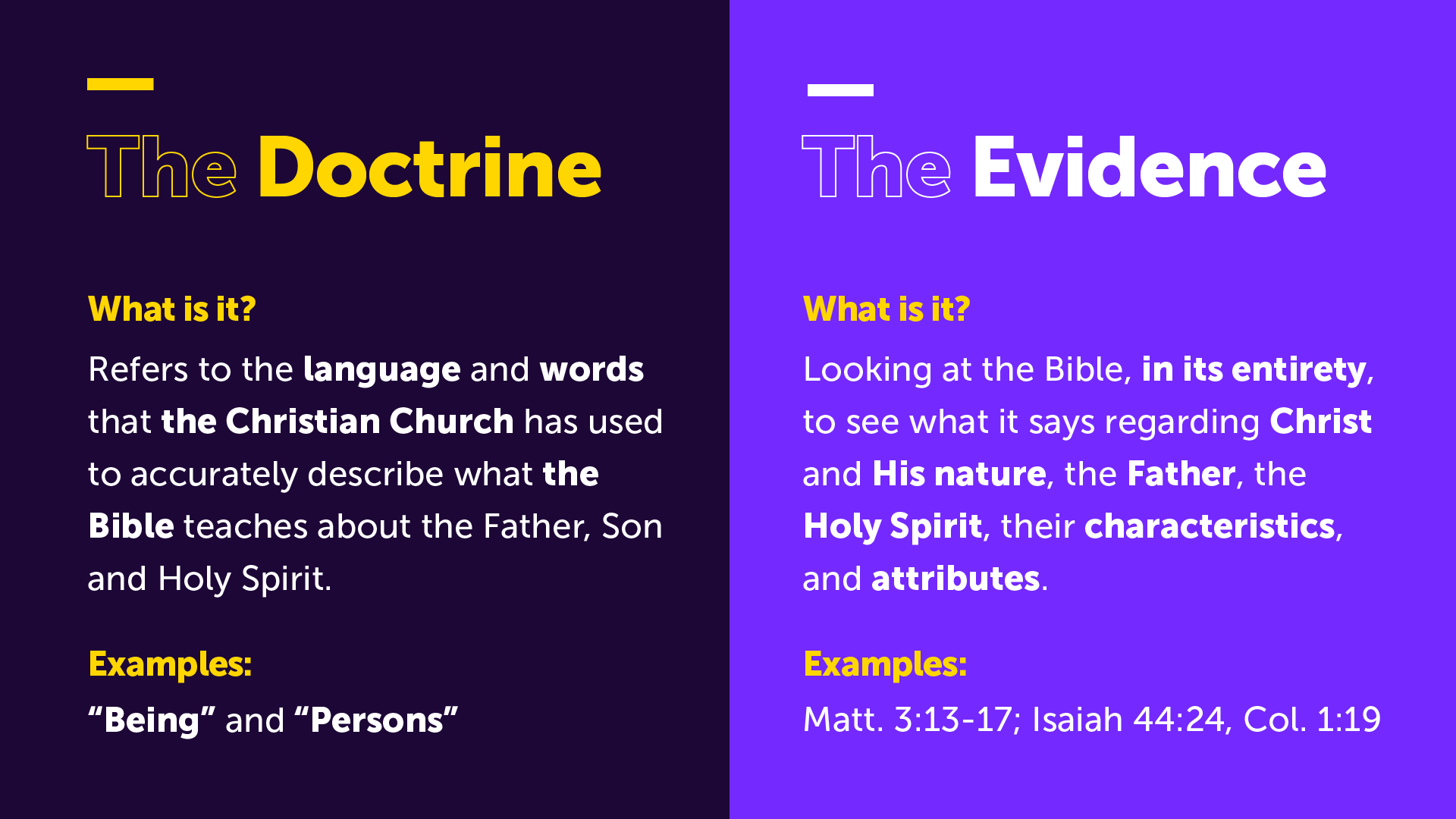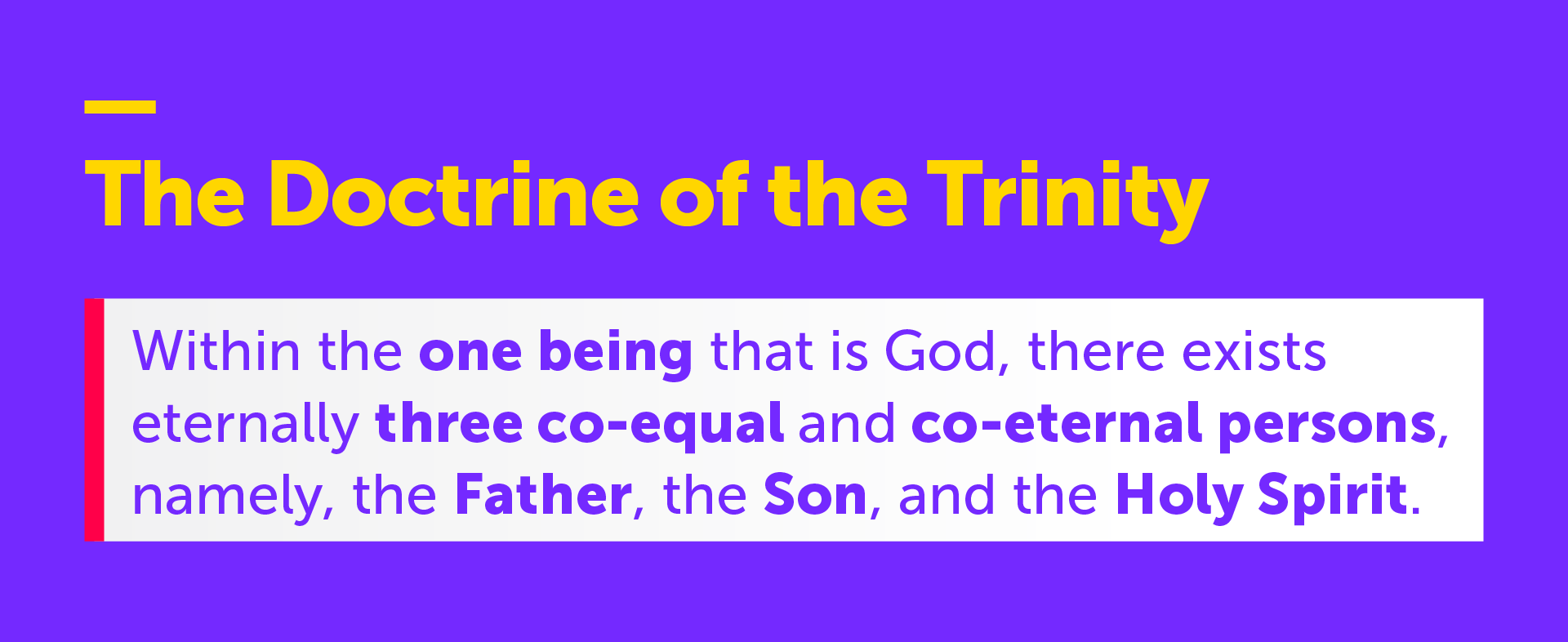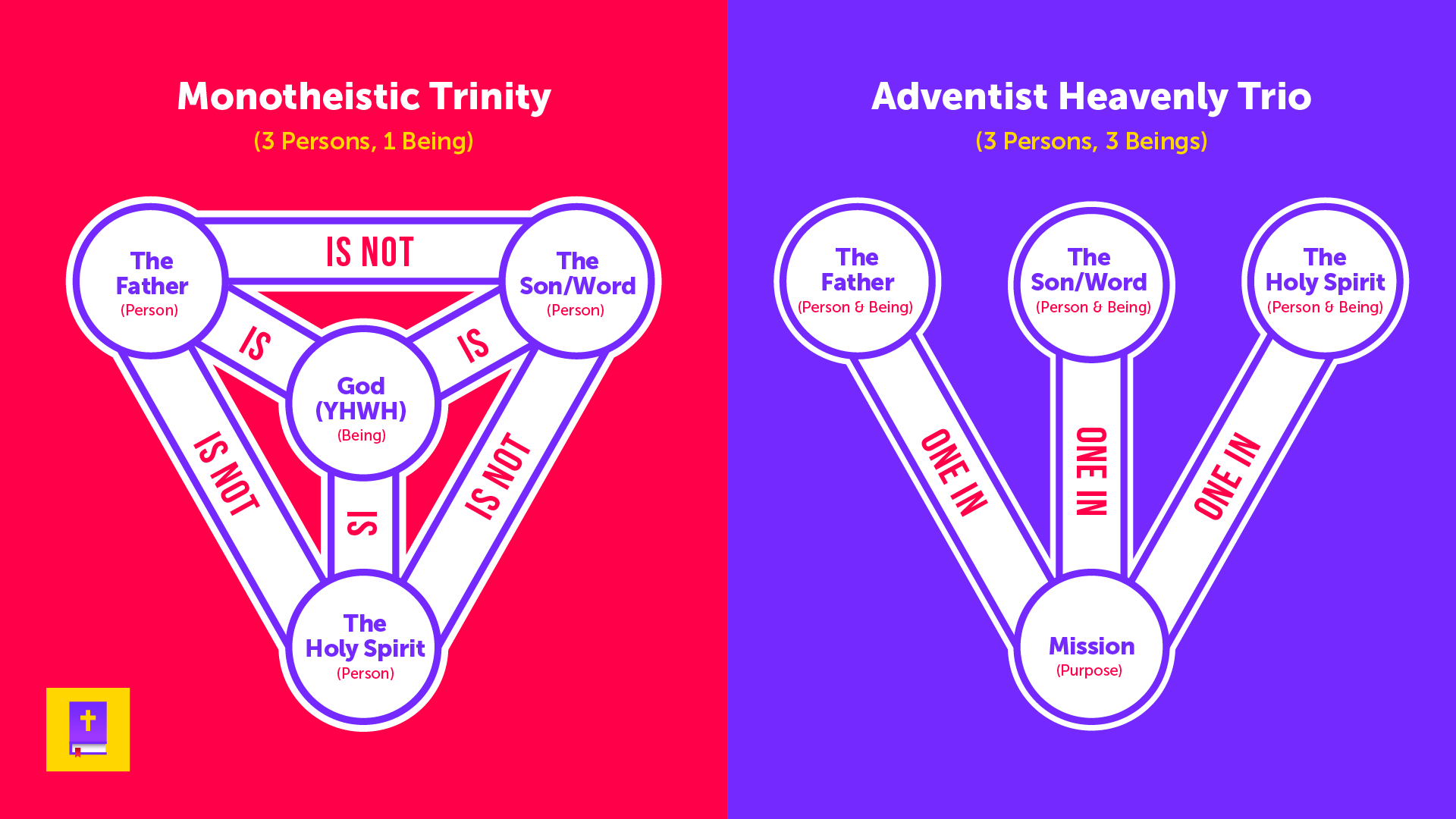The doctrine of the trinity is the language the Christian church has used to describe what we find in the Bible regarding how God has revealed himself. It is not to be confused with the biblical evidence for the Trinity.

The doctrine of the Trinity uses words not necessarily found in the Bible to more accurately describe what the Bible is presenting. The Trinity is a cardinal, foundational doctrine of the Christian religion. It is what differentiates the One True God from all of the other idols.

The doctrine states that the Bible teaches there is one God, Yahweh (Deuteronomy 6:4; Isaiah 45:5-6), and that one God exists as three persons—namely the Father, the Son/Word, and the Holy Spirit. There is one Being (Yahweh) that is shared by three co-equal, co-eternal persons. All three persons possess all of the divine attributes (ie: omnipresence, omniscience, omnipotence, etc.)
Being is used to denote the mode/state of existence. Person is being used to refer to the ability to will, self-reflect, speak, be spoken to, show emotion, etc. This is how the Bible distinguishes between the plurality and singularity of God.
Below is a chart tracking out, across scripture as a whole, only a handful of reasons why the Christian church affirms the Trinity:
| God the Father | God the Son | God the Holy Spirit | |
| Called God | Phil. 1:2 | Titus 2:13; Col. 2.9; Heb. 1:8 | Acts 5:3-4 |
| All-knowing | 1 John 3:20 | John 16:30; 21:17 | 1 Cor. 2:10-11 |
| Creator | Isaiah 44:24; 64:8 | John 1:3; Col. 1:15-17 | Job 33:4; 26:13 |
| Eternal | Psalm 90:2 | Micah 5:1-2; John 8:58 | Hebrews 9:14 |
| Everywhere | 1 Kings 8:27 | Matthew 28:20 | Psalm 139:7-10 |
| Indwells us | 2 Corinthians 6:16 | Colossians 1:27 | John 14:17; Romans 8:11 |
| Sees the heart | Jer. 17:10 | Revelation 2:23 | 1 Corinthians 2:10 |
| Resurrects Jesus | 1 Thess. 1:10 | John 2:19; 10:17 | Romans 8:11 |
| Sanctifies | 1 Thess. 5:23 | Hebrews 2:11 | 1 Peter 1:2 |
While the Seventh-Day Adventist Church has borrowed the term “trinity,” they do not teach orthodox, Christian trinitarianism, but their own concept called the “Heavenly Trio.”

To see how Christian trinitarianism compares to the Seventh-Day Adventist “Heavenly Trio” see our break down here.










